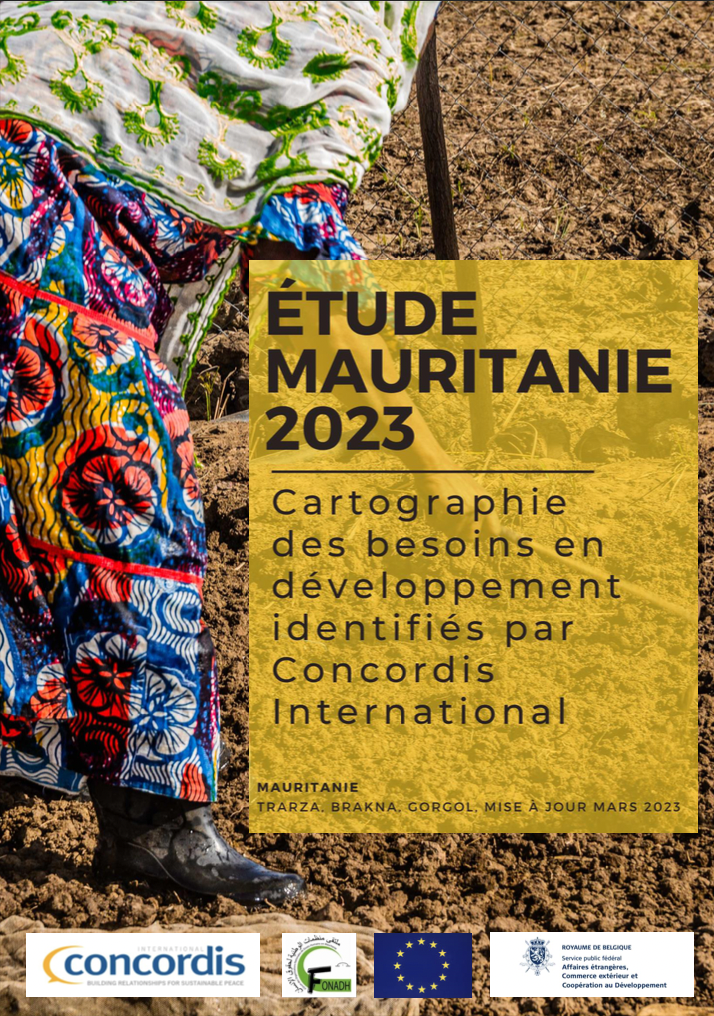Reports
Filter by Programme:
Filter by Issue:
Filter by language:
Search Reports
Recognising the Local in Borderland Governance
Borderland governance is an ongoing process. Cross-border dynamics require continual management, and local borderland agreements are an integral feature and essential component of this.
Peacebuilding saves the harvest in a famine caused by war.
The 2024 agricultural season in South Darfur marked a remarkable recovery, with harvests reaching 70-95% of pre-war levels across 14 localities where Concordis supports peacebuilding. There will be no famine in South Darfur this year as a result. This report looks at the success of the harvest and peacebuilding in the region.
South Darfur Conflict Analysis and Peacebuilding Opportunities
The Concordis’ team and our network of 220 Community Peacebuilders continued to work for peace in South Darfur throughout the current war in Sudan. Whilst the world focussed on the two lead protagonists, or ignored the war altogether, they have been transforming conflict where the war is felt most keenly.
Annual Review 2024
Read about Concordis' work in 2023 and in 2024, the year of our 20th birthday. We look at the contribution our twenty year history has made to the skillset we have, and how we are using those skills today. And we bring you stories of how we continue to find the best of humanity in the worst of situations.
Strategy Document 2025-2030
For twenty years we have worked with people who live where conflict is fought and felt, helping them find workable solutions that address the root causes of conflict and contribute to lasting peace and economic development.
In this document, we will outline our vision and strategy for the next five years, as we continue and develop our work in the central belt of Africa.
Promouvoir une Transhumance Apaisée dans le Nord de la République Centrafricaine
Ce rapport s’appuie sur les résultats des consultations menées auprès de 4220 personnes entre décembre 2023 et février 2024, par Concordis International (Concordis), dans les préfectures de Vakaga, Bamingui-Bangoran, Lim-Pendé et Ouham-Pendé, ainsi que dans la sous-préfecture de Markounda (préfecture de Ouham).
Promoting Peaceful Transhumance in the North of the Central African Republic
This report is based on the results of consultations with 4,220 people carried out between December 2023 and February 2024 by Concordis International in the prefectures of Vakaga, Bamingui-Bangoran, Lim-Pendé and Ouham-Pendé, as well as in the sub-prefecture of Markounda (Ouham prefecture).
Annual Report 2023
This 2023 Report sets our mission, values, principles and how we approach peacebuilding. We also disclose our audited financial statements and summarise the impact and activities of our programmes over the course of the financial year. In addition, Concordis reports on risk management and governance and other key aspects in the management of the organisation.
Annual Review 2023
Read about the our programmes, methods and philosophy as well as some of the wider context of our work in 2022 and 2023. We see struggles and losses, but we also see breakthroughs, impacts and fruits, and we tell you more in this review.
Rapport sur la cohésion sociale & cartographie des infrastructures en Ouham Pendé
L'état des infrastructures liées à la transhumance dans la préfecture de l'Ouham Pendé. Comprend des cartes et des recommandations qui traitent des conflits entre éleveurs et agriculteurs autour de la transhumance.
RELSUDE Project Report: Ouango
This French language report, written by Concordis as part of the RELSUDE project, examines conflict dynamics in the town of Ouango in the southeast of the CAR. The report, finalized in October 2021, forms part of a series of 11 reports exploring the causes of conflict and community perception in the southeast of the country.



















